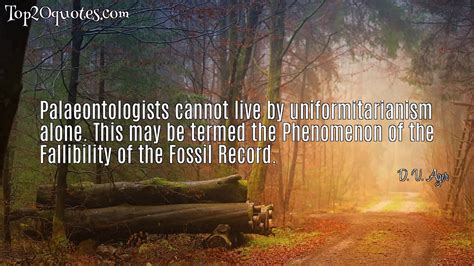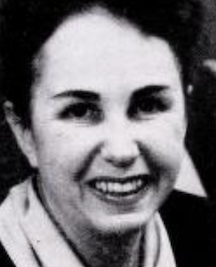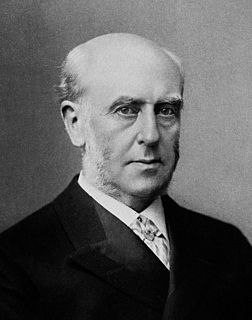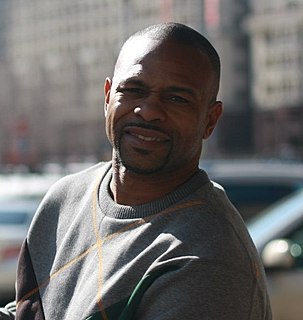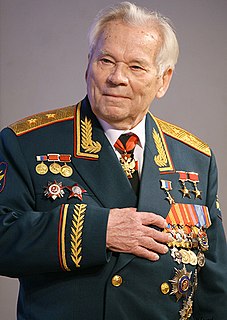Top 1200 Written History Quotes & Sayings - Page 19
Explore popular Written History quotes.
Last updated on November 24, 2024.
I think comedy allows people to accept the more difficult parts of history. And history, if it's presented wrong, is just very depressing, particularly the history of slavery. If slavery is presented properly, it's a great story. But I think that within the commercial world of storytelling in which I live, there haven't been many strong works that discuss slavery in ways that are palatable and funny and interesting to the reader.
The true makes of history are the spiritual men whom the world knew not, the unregarded agents of the creative action of the Spirit. The supreme instance of this-the key to the Christian understanding of history-is to be found in the Incarnation- the presence of the maker of the world in the world unknown to the world. ... The Incarnation is itself in a sense the divine fruit of history-of the fullness of time-and it finds its extension and completion in the historic life of the Church.
I find myself absolutely fulfilled when I have written a poem, when I'm writing one. Having written one, then you fall away very rapidly from having been a poet to becoming a sort of poet in rest, which isn't the same thing at all. But I think the actual experience of writing a poem is a magnificent one.
Jane Francklyne, born in 1565, had lived for less than a month. She left very little behind. She was buried in the Ecton churchyard, but her father would hardly have paid a carver to engrave so small a stone. If not for the parish register, there would be no record that this Jane Francklyne had ever lived at all. History is what is written and can be found; what isn't saved is lost, sunken and rotted, eaten by the earth.
Total oblivion is the fate of almost everything in this world. I'm very likely to suffer that same fate; my work will probably not be remembered, and if any of it is, if any of those novels is fated to be one of those novels that is still being read 50 or 100 years after it was written, I've probably already written it.
The BBC is very much in thrall to all this techno cross-fertilisation, in much the same way that print journalists are now encouraged to blog. To the point where there is an emerging breed of sub-editors who take perfectly well-written and punctuated original copy and rewrite it so that it resembles a text message written by a 14-year-old under the influence of Bacardi Breezers.
The thing that separates Sophie from the music I do for other people is that it's 100% written by me. In the past, I've written my songs and then asked friends if they could record the vocals. I didn't want to use my own voice, because other people have much better voices. I was hearing the music with a voice that I don't have.
Poetry cannot be translated; and, therefore, it is the poets that preserve the languages; for we would not be at the trouble to learn a language if we could have all that is written in it just as well in a translation. But as the beauties of poetry cannot be preserved in any language except that in which it was originally written, we learn the language.
So many times, I will have people tell me what I did when I was younger. There's so much being written [about] the early Beatles period, and even pre-Beatles period. And people will say, "Oh, he did that because that, and that happened because of that." And I'll be reading and think, "Well, that didn't happen" and, "That's not why I did that." Like anyone's history, you remember what went down better than people who weren't there.
So we have a choice to make. We can once again let Washington's bad habits stand in the way of progress. Or we can pull together and say that in America, our destiny isn't written for us but by us. We can place good ideas ahead of old ideological battles, and a sense of purpose above the same narrow partisanship. We can act boldly to turn crisis into opportunity and, together, write the next great chapter in our history and meet the test of our time.
I believe that the mainstream publishers, DC and Marvel, need to catch up as well. Out of the fifty-odd books that are published each month, just a handful are written by women, and even less of those are written by women of color. It's not right, and it's not good for the companies in the long-term. It's also not good for fans, for readers.
In the preface to his great History of Europe, H. A. L. Fisher wrote: "Men wiser than and more learned than I have discerned in history a plot, a rhythm, a predetermined pattern. These harmonies are concealed from me. I can see only one emergency following upon another as wave follows upon wave ..." It seems to me that the same is true of the much older [geological stratigraphical] history of Europe.
Only idiots or snobs ever really thought less of 'genre books' of course. There are stupid books and there are smart books. There are well-written books and badly written books. There are fun books and boring books. All of these distinctions are vastly more important than the distinction between the literary and the non-literary.
In history there are no control groups. There is no one to tell us what might have been. We weep over the might have been, but there is no might have been. There never was. It is supposed to be true that those who do not know history are condemned to repeat it. I don't believe knowing can save us. What is constant in history is greed and foolishness and a love of blood and this is a thing that even God--who knows all that can be known--seems powerless to change.
The First Amendment of the Constitution was not written to protect the people from religion; that amendment was written to protect religion from government tyranny. . . But now we're told our children have no right to pray in school. Nonsense. The pendulum has swung too far toward intolerance against genuine religious freedom. It is time to redress the balance.
These microscopic organisms form an entire world composed of species, families and varieties whose history, which has barely begun to be written, is already fertile in prospects and findings of the highest importance. The names of these organisms are very numerous and will have to be defined and in part discarded. The word microbe which has the advantage of being shorter and carrying a more general meaning, and of having been approved by my illustrious friend, M. Littré, the most competent linguist in France, is one we will adopt.
The Imitation of Christ is a cherished treasure of the Christian world. This great book was written by a Roman Catholic monk. "Written", perhaps, is not the proper word. It would be more appropriate to say that each letter of the book is marked deep with the heart's blood of the great soul who had renounced all for his love of Christ.
When King Lear dies in act five, do you know what Shakespeare has written? He has written, 'He dies.' No more. No fanfare, no metaphor, no brilliant final words. The culmination of the most influential piece of dramatic literature is, 'He dies.' Now I am not asking you to be happy at my leaving but all I ask you to do is to turn the page and let the next story begin. -- Mr. Magorium
I've written with people who aren't like me, then I've written with people who totally get it. It's like a blind date, and you never know what's going to happen. But it's really cool because they learn from you, and you learn a little bit from them. And sometimes it works out, and sometimes it doesn't.
I want to find a genie in a bottle that can grant me three wishes. I want to be able to speak, read, write, and understand any language ever written or spoken, just any language throughout the history of man. That would be one of my wishes from the genie, so I would have to put "multilingual" on the resume, should I ever find the genie.
My aim was to create armaments to protect the borders of my motherland. It is not my fault that the Kalashnikov became very well-known in the world; that it was used in many troubled places. I think the policies of these countries are to blame, not the designers. Man is born to protect his family, his children, his wife. But I want you to know that apart from armaments, I have written three books in which I try to educate our youth to show respect for their families, for old people, for history.
Oral history is a research method. It is a way of conducting long, highly detailed interviews with people about their life experiences, often in multiple interview sessions. Oral history allows the person being interviewed to use their own language to talk about events in their life and the method is used by researchers in different fields like history, anthropology and sociology.
If Mother Culture were to give an account of human history using these terms, it would go something like this: ' The Leavers were chapter one of human history -- a long and uneventful chapter. Their chapter of human history ended about ten thousand years ago with the birth of agriculture in the Near East. This event marked the beginning of chapter two, the chapter of the Takers. It's true there are still Leavers living in the world, but these are anachronisms, fossils -- people living in the past, people who just don't realize that their chapter of human history is over. '
I have read many definitions of what is a conservationist, and written not a few myself, but I suspect that the best one is written not with a pen, but with an axe. It is a matter of what a man thinks about while chopping, or while deciding what to chop. A conservationist is one who is humbly aware that with each stroke he is writing his signature on the face of his land.
It seems to me, that this, too, is how memory works. What we remember of what was done to us shapes our view, molds us, sets our stance. But what we remember is past, it no longer exists, and yet we hold on to it, live by it, surrender so much control to it. What do we become when we put down the scripts written by history and memory, when each person before us can be seen free of the cultural or personal narrative we've inherited or devised? When we, ourselves, can taste that freedom.





























